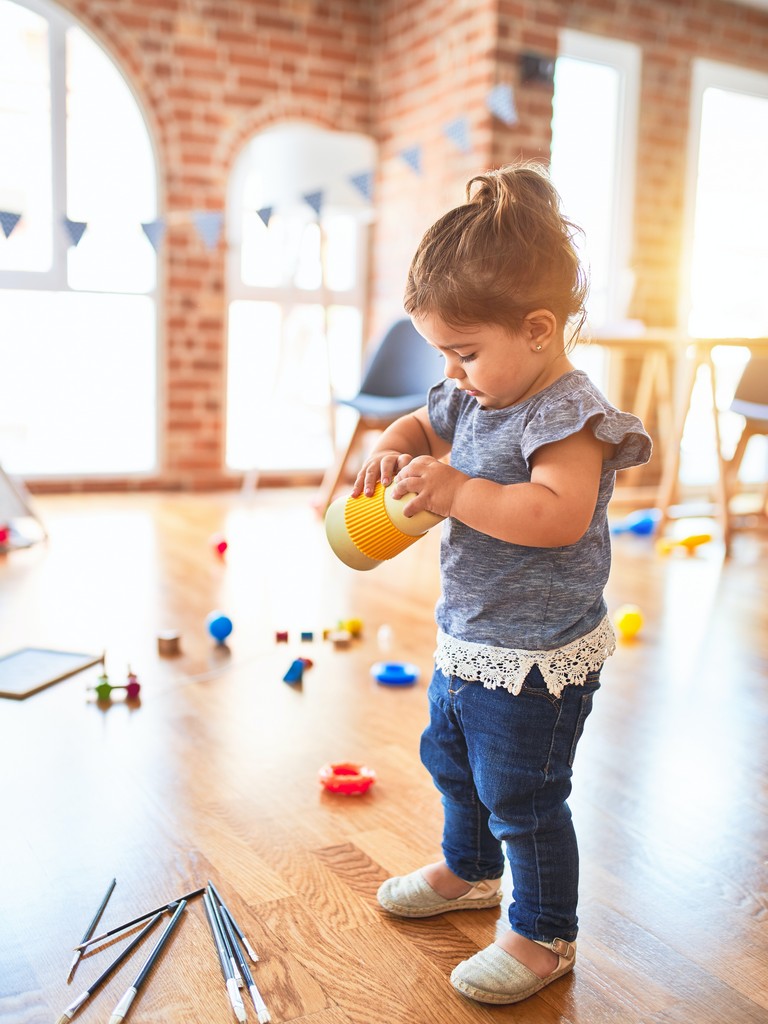The Real Reasons Why Montessori Education Can Be Harmful to Your Child.You might have heard of Montessori education, but what exactly is it? It’s an educational method that was developed by Maria Montessori in the early 20th century. The main goal of this method is to help children develop independence and self-discipline through hands-on learning experiences. The curriculum focuses on sensory activities such as cooking, sewing, and gardening rather than reading textbooks or sitting at desks all day long like traditional schools do.
Montessori schools can be found around the world today–the US alone has over 3200 schools using this method according to their website! Many people believe that this type of education will give their kids an advantage when they enter kindergarten because they’ve already been exposed to so many different concepts in school before starting kindergarten (like math). However, there are some downsides too…
Child Development
Montessori education is a child-centered approach to learning. It emphasizes hands-on learning and play-based activities, which can be beneficial for young children. However, the Montessori method isn’t appropriate for all children and may not be right for you or your family.
The Montessori Method was developed by Dr. Maria Montessori in the early 1900s as an alternative to traditional schooling methods that emphasized memorization and direct instruction from teachers (also known as “chalkboard” teaching). Instead of sitting at desks with books open in front of them, students worked individually at their own pace on projects related to their interests or needs–a concept known as individualized learning. This type of classroom environment allows each student’s unique talents and abilities to shine through while still providing structure through set routines such as snack times or cleanup duties; this gives kids confidence in themselves while also preparing them for life outside school walls!
The Role of the Teacher
In Montessori schools, the teacher’s role is very different from what you might expect. A Montessori teacher doesn’t have much direct interaction with students. Instead, she spends most of her time preparing materials for them to use independently in their workstations and observing them as they do so. She also helps guide parents through how best to support their child’s development at home by providing advice on how best to engage with him or her during daily activities such as meal times and bedtime rituals.
The relationship between a Montessori teacher and student is one based on mutual respect; however, this can lead some children who don’t receive enough attention from their parents to feel neglected by those around them in general–including teachers who don’t give them enough attention either!
Parental Involvement in Montessori
Montessori education is a great way to teach kids to be independent, but it can also have some negative consequences. For example, the parent’s role in the classroom is very limited. In traditional schools, parents are often involved in their child’s education by volunteering or attending parent-teacher conferences; however, this is not always true for Montessori schools.
In addition to this lack of parental involvement, there are many other reasons why Montessori may not be right for your child:
Montessori Criticisms
Montessori critics have pointed out that the lack of structure in a Montessori classroom can be harmful to children. As a result, many parents choose to keep their children in traditional schools where there is more teacher-directed instruction and assessment.
Another criticism of the Montessori method is that it does not provide enough opportunities for students to learn through direct instruction by teachers. Some people believe that this lack of direct teaching will hurt your child’s academic performance because they won’t learn as much as other kids who receive more teacher attention in traditional classrooms.
The Montessori Controversies
Montessori education has been criticized for its gender roles, racial stereotypes, and classroom dynamics.
- Gender roles: Montessori schools are often criticized for reinforcing traditional gender norms by separating kids into different classrooms at an early age. For example, in the United States, many schools have separate “boy” or “girl” classes where teachers teach only one gender to the exclusion of others until they reach puberty or even later. This can lead to children developing narrow views about what is appropriate behavior for their sex group (e.g., boys should be strong leaders; girls should be gentle nurturers).
- Racial stereotypes: Some critics have also argued that Montessori education reinforces racial stereotypes by assigning people of color students lower-status roles within the classroom hierarchy such as janitors or kitchen helpers rather than giving them more important jobs like teaching assistants who help out with lessons during class time.*
- Classroom dynamics: Critics say that because each child has an individualized schedule with no set curriculum there’s little opportunity for peer interaction between different age groups unless parents arrange playdates outside school hours
Montessori Pros and Cons
Pros:
- Independence – The Montessori classroom is designed to encourage independence, which helps children develop self-confidence.
- Creativity – Children are encouraged to explore their environment and make connections between what they see, feel, and hear. This fosters creativity and critical thinking skills that will last a lifetime!
- Self-directed learning – Students learn at their own pace in this unique environment where teachers guide rather than direct instruction. It’s an ideal way for kids who are ready for more responsibility (or just want some peace) while still providing support when needed most!
Cons:
Lack of structure – Without clear rules or guidelines set forth by teachers/parents at home then children may not know how best to utilize their time outside school hours which could lead them down paths that aren’t always healthy for developing minds such as drugs/alcohol abuse etc…
Montessori Misconceptions
- Misconceptions about Montessori schools. Many people assume that if they put their child in a Montessori school, they will be guaranteed to receive an excellent education with no drawbacks and no need for parental involvement. This is simply not true! There are many great things about Montessori schools, but there are also some downsides that parents need to be aware of before enrolling their children.*
- Misconceptions about Montessori materials. One misconception is that the materials used in a typical classroom setting at home are exactly like those used at school–they’re not! Most of them are quite different because they were created specifically for use by children who attend traditional public schools (or other types of private institutions). So if you think using these items will help prepare your child for kindergarten or preschool…think again!*
Conclusion
We hope that this article has helped us understand the pros and cons of Montessori education. However, there is still a lot more research required before we can make any definitive conclusions about its effects on children. In addition, it’s important to remember that every child is different, so what works well for one kid may not work at all for another.
If you’re considering sending your child to an MCI or MCS program, please do your research thoroughly and talk with other parents who have experience with these schools before making any decisions!
FAQs
Q: What is Montessori education?
A: The Montessori method was developed by Italian physician and educator Maria Montessori in the early 1900s. Her philosophy was that children learn best when they are allowed to explore their environment with minimal adult interference and that they should be provided with materials appropriate for their developmental stage. The teacher’s role is not to lecture or teach facts but rather to guide students through an experience in which they can learn independently through repetition and practice.
Q: What is the role of the teacher in Montessori?
A: A good teacher will observe each child’s interests, strengths, and weaknesses so she can provide appropriate activities for each student at his or her own pace within an environment that supports free choice among many different types of activities (some practical and some artistic).

Meet Helen, a passionate educator and Montessori expert with over 15 years of experience in the field. She holds a Bachelor’s degree in Education and a Master’s degree in Montessori Education. Helen’s love for the Montessori method began when she was introduced to it during her own childhood education. Since then, she has dedicated her career to promoting the Montessori approach as a way to help children develop their full potential. Through her work as a teacher, consultant, and writer, Helen has helped countless parents and educators understand and implement the Montessori philosophy in their own lives. Her articles and books have been published in various education journals and she has been invited to speak at conferences around the world. Helen believes that every child has the potential to thrive and that Montessori education provides the tools to make that happen.

1 thought on “The Real Reasons Why Montessori Education Can Be Harmful to Your Child”